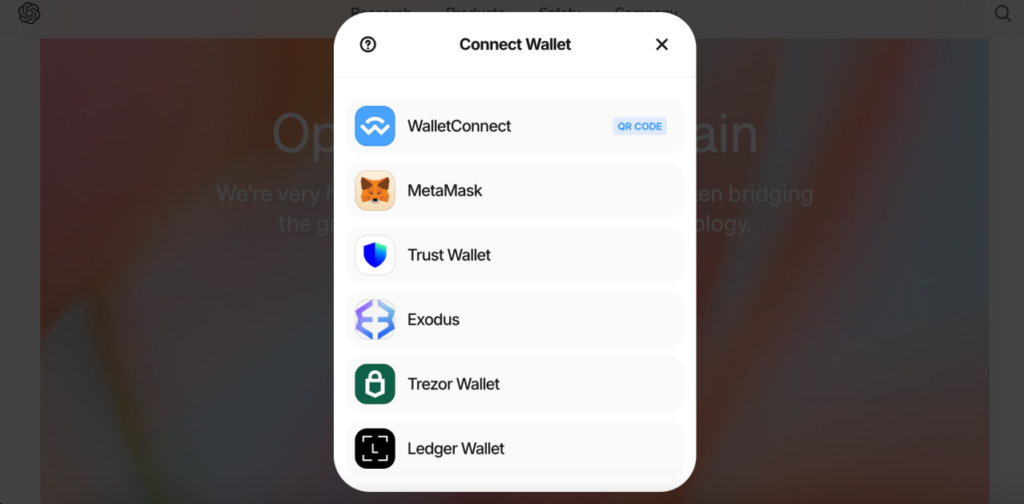In a concerning development, OpenAI’s official press account on X (formerly Twitter) was compromised late Monday afternoon by a group of cryptocurrency scammers. This marks the latest in a series of breaches targeting OpenAI’s leadership and affiliated accounts over the past few months.
The OpenAI Newsroom account, a relatively new profile created to share updates on the company’s products and policies, was hijacked to promote a fraudulent blockchain token dubbed “$OPENAI.” The scam post, riddled with errors including the misspelled ticker symbol “$OPEANAI,” falsely claimed that OpenAI had launched a new token aimed at bridging artificial intelligence (AI) with blockchain technology.
The post enthusiastically stated: “We’re very happy to announce $OPEANAI [sic]: the gap between AI and blockchain technology. All OpenAI users are eligible to claim a piece of $OPENAI’s initial supply. Holding $OPENAI will grant access to all of our future beta programs.”

However, no such token exists.
The post included a link directing users to a phishing website masquerading as an official OpenAI page, with a fraudulent URL: “token-openai.com.” This site urged visitors to “CLAIM $OPENAI” by connecting their cryptocurrency wallets, likely with the intent of stealing login credentials and draining users’ digital assets.

At the time of writing, the malicious post and phishing website were still active, with a follow-up post teasing more information about the fake token “to come later in the week.” Disturbingly, comments on the original post were disabled, limiting the ability of users to flag the scam and potentially preventing further detection.
A Pattern of Attacks
This isn’t the first time OpenAI’s accounts have been targeted by cybercriminals. In June 2023, OpenAI’s Chief Technology Officer (CTO), Mira Murati, had her X account compromised, with scammers posting nearly identical claims about a fictitious $OPENAI token. More recently, the X accounts of OpenAI’s Chief Scientist, Jakub Pachocki, and Researcher, Jason Wei, were hijacked to promote similar scams.
According to reports, the hackers behind Murati’s account breach used a tool referred to as a “crypto drainer,” which siphons NFTs and other digital assets from victims’ wallets once they connect to fraudulent sites.
Unfortunately, the tactics used in the OpenAI Newsroom breach are not isolated incidents. Prominent X accounts belonging to tech companies and public figures have been exploited in recent years to fuel cryptocurrency scams. One of the most infamous attacks occurred in 2020, when accounts tied to Apple, Elon Musk, and even then-presidential candidate Joe Biden were hacked to post a bitcoin wallet address with the false promise that any payments sent would be doubled and returned.
A Growing Concern
As cryptocurrency scams surge in frequency and sophistication, the financial toll on unsuspecting users is becoming staggering. The FBI reported that Americans lost a record $5.6 billion to crypto scams in 2023, marking a 45% increase from the previous year. The trend shows no signs of slowing: according to data from the Federal Trade Commission (FTC), over 50,000 scams were reported in just the first half of 2024, amounting to nearly $2.5 billion in losses.
OpenAI and X have yet to comment on the latest breach, but this ongoing wave of attacks on high-profile accounts underscores the urgent need for enhanced cybersecurity measures across social media platforms — especially those widely used by companies, influencers, and cryptocurrency enthusiasts.
As scammers grow bolder and more adept at impersonating trusted brands, it’s a stark reminder for users to remain vigilant and skeptical of any offers related to cryptocurrency that appear on social media, especially when they promise easy rewards or access to exclusive opportunities.
For now, those hoping to capitalize on OpenAI’s genuine innovations should stick to official channels — and avoid any mention of $OPENAI.
We’ll update this story as more information becomes available.










